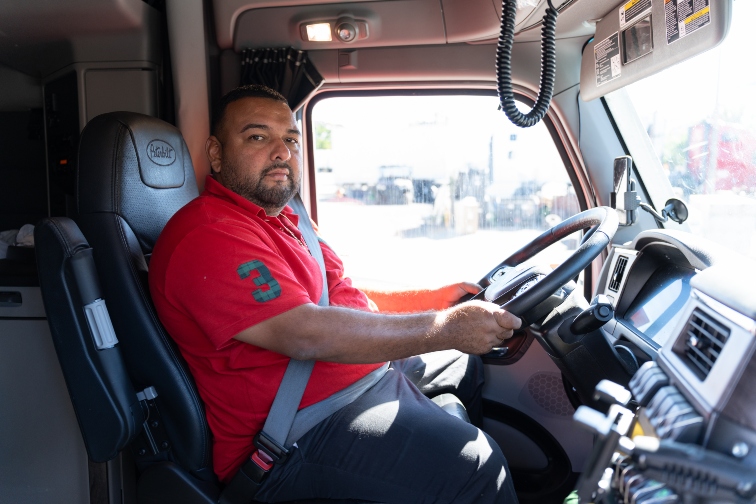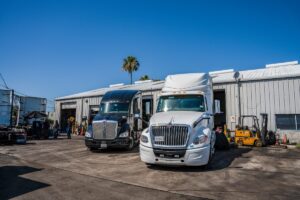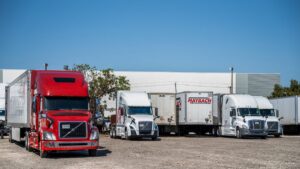If you’re a seasoned truck driver contemplating the leap to becoming an owner-operator, you’re embarking on a journey that combines autonomy, increased responsibilities, and the potential for greater financial rewards. However, transitioning from a company driver to an owner-operator necessitates careful consideration of qualifications and requirements. In this guide, we’ll explore the key aspects that define the qualifications and requirements for those aspiring to become successful owner-operators in the trucking industry.
Understanding the Role of an Owner Operator
Before delving into the qualifications, it’s crucial to comprehend the role of an owner-operator. An owner-operator is a professional truck driver who not only operates the commercial vehicle but also owns and manages their own trucking business. This autonomy comes with the freedom to choose routes, manage schedules, and negotiate contracts. However, this independence is coupled with the responsibility of overseeing the entire business, from finances to maintenance.
Qualifications and Requirements
1. Commercial Driver’s License (CDL)
The first and foremost requirement to become an owner-operator is holding a valid Commercial Driver’s License (CDL). This license is your ticket to legally operate commercial vehicles, and the type of CDL needed may depend on the weight and type of the vehicle you plan to operate.
2. Professional Experience
Experience is a valuable asset in the trucking industry. Many owner-operators have several years of experience as company drivers before taking on the role of owning and operating their trucks. While there isn’t a strict minimum requirement, having a solid foundation of experience ensures you’re well-versed in the nuances of the industry.
3. Financial Stability
Becoming an owner-operator involves a significant financial investment. Assessing your financial stability is crucial. Lenders and financial institutions may scrutinize your credit score and financial history when considering financing options for purchasing a truck and establishing your business.
4. Business Acumen
Owning and managing a trucking business requires more than just driving skills. Business acumen is vital for success. Understanding financial management, bookkeeping, and business operations will contribute to the sustainability and growth of your venture.
5. Regulatory Compliance
Owner-operators must navigate a complex web of federal and state regulations. Ensuring compliance with safety standards, hours-of-service regulations, and other industry-specific rules is paramount. Staying informed about regulatory changes is an ongoing responsibility.
6. Entrepreneurial Spirit
An entrepreneurial mindset is a distinguishing factor for successful owner-operators. It involves the ability to take calculated risks, make strategic decisions, and continually seek opportunities for growth. Flexibility and adaptability are also key traits.
7. Insurance Coverage
Securing the right insurance coverage is a non-negotiable aspect of being an owner-operator. From liability insurance to cargo coverage, having comprehensive insurance protects your business, assets, and provides peace of mind in the face of unforeseen events.
Difference Between Owner-Operator and Company Truck Driver
Understanding the distinction between an owner-operator and a company truck driver is vital for anyone considering this career path. While company drivers work for a trucking company, owner-operators own their trucks and run independent businesses. The latter enjoys greater autonomy but bears the responsibility of managing all aspects of their business.
Dedicated Trucking Services
In the competitive world of trucking, one avenue that aspiring owner-operators might explore is dedicated trucking services. These services involve working with a specific client or company to transport their goods exclusively. This can provide a more stable and predictable income compared to general freight hauling. Dedicated services often involve long-term contracts, allowing owner-operators to build strong relationships with clients and enjoy a consistent flow of work.
11 Steps to Becoming an Owner Operator
Now that we’ve outlined the qualifications and requirements, let’s break down the steps to becoming an owner-operator:
1. Research and Planning
Start by researching the industry, market trends, and potential challenges. Create a detailed business plan that outlines your goals, target market, and financial projections.
2. Secure Financing
Explore financing options for purchasing your truck. This may involve loans, leasing programs, or a combination of both. A solid credit history and a well-thought-out business plan can enhance your chances of securing financing.
3. Choose the Right Truck
Selecting the right truck is a critical decision. Consider factors such as fuel efficiency, maintenance costs, and the type of freight you plan to haul. Ensure that the chosen truck aligns with your business goals.
4. Obtain Necessary Licenses and Permits
Make sure you have all the necessary licenses and permits to operate within the bounds of the law. This may involve acquiring a USDOT number if you’re operating as an independent entity, obtaining state permits, and ensuring compliance with other relevant regulations. Additionally, it’s crucial for everyone to have a dedicated business bank account in place to streamline financial operations.
5. Invest in Equipment and Technology
In addition to your truck, invest in essential equipment such as communication devices, navigation systems, and electronic logging devices (ELDs). These tools not only enhance efficiency but also contribute to regulatory compliance.
6. Build a Network
Networking is crucial in the trucking industry. Establish relationships with shippers, brokers, and other industry professionals. A strong network can lead to valuable partnerships and business opportunities.
7. Streamline Your Reporting with IFTA
As an owner operator, you’ll find IFTA (International Fuel Tax Agreement) vital. It simplifies fuel tax reporting and payment, helping you track fuel expenses and miles driven across different states. This system ensures compliance with tax regulations and streamlines tax reporting, ultimately saving you time and money.
8. Embrace Technology
Stay abreast of technological advancements in the trucking industry. Utilize fleet management software, GPS systems, and other tools to streamline operations and improve overall efficiency.
9. Prioritize Safety and Compliance
Safety should be a top priority. Implement safety protocols, ensure regular vehicle maintenance, and stay informed about industry safety standards and regulations.
10. Consider Hiring
As your business grows, you may consider hiring additional drivers. Ensure that any drivers you hire are qualified, reliable, and share your commitment to safety and professionalism.
11. Continuous Learning
The trucking industry is dynamic, with evolving regulations and technologies. Commit to continuous learning to stay informed about industry trends and changes.
In Conclusion
Becoming an owner-operator is a challenging yet rewarding endeavor. By understanding and meeting the qualifications and requirements outlined here, coupled with a strategic approach to building and managing your business, you can position yourself for success in the competitive world of trucking. Remember, success as an owner-operator requires a combination of skills, experience, and a dedication to continuous improvement. Good luck on your journey to becoming a successful owner-operator in the trucking industry!







